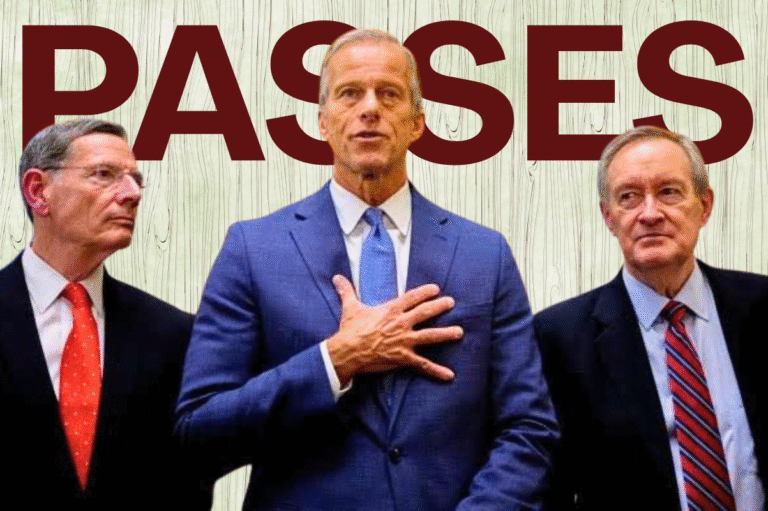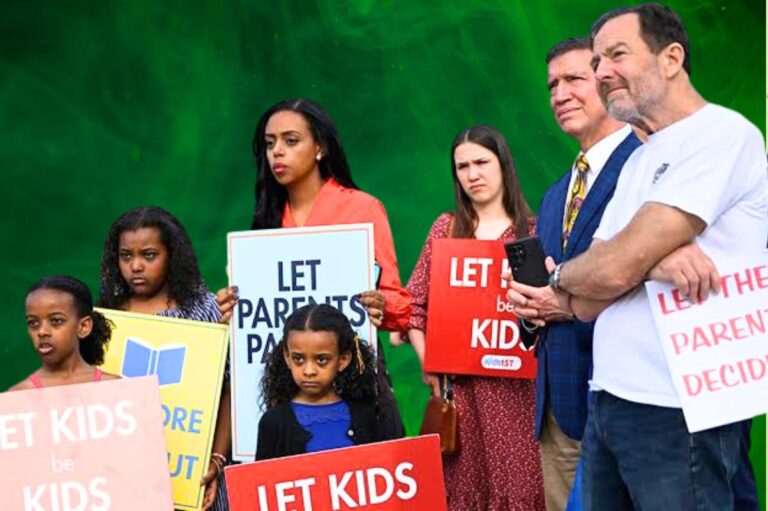Trump Cuts 80% of USAID Budget — Report Warns 14 Million Could Die by 2030
U.S. President Donald Trump has proposed an 80% reduction in the United States Agency for International Development (USAID) budget, a move that has garnered widespread condemnation from global health experts and humanitarian organizations. This drastic reduction in foreign aid funding could have catastrophic consequences worldwide. Recent projections warn that over 14 million lives may be lost by 2030 due to the fallout.
The proposed cuts, detailed in a budgetary report released this week, represent one of the most aggressive downsizing efforts in the history of U.S. international aid. Critics argue that this decision prioritizes isolationist policies over humanitarian responsibility, potentially destabilizing health systems, food security, and education in some of the world’s most vulnerable regions.
Pro-Palestine Protester lost his Vision in Sydney Police Clash
Global Outcry as Trump Cuts 80% of USAID Budget
The USAID budget cut under Trump has faced swift criticism from international NGOs, United Nations agencies, and former U.S. diplomats. The Global Health Council condemned the move as “reckless and life-threatening,” while the World Health Organization (WHO) warned that it would jeopardize decades of progress in combating diseases like HIV/AIDS, tuberculosis, and malaria.
According to the Center for Global Development, USAID-funded programs save millions of lives annually through vaccination drives, maternal healthcare, emergency food assistance, and access to clean water. However, a drastic 80% reduction in funding could lead to the shutdown of these programs in over 40 countries.
14 Million Lives at Risk What the Data Says
A joint report from Save the Children and Doctors Without Borders predicts that up to 14 million people could die prematurely by 2030 if the USAID budget cuts are fully implemented. The majority of these fatalities are expected to occur in Sub-Saharan Africa and South Asia, regions that heavily rely on U.S. aid for essential medical and nutritional services.
These cuts would halt vaccination campaigns, restrict emergency relief operations, and cut funding to refugee camps and conflict zones. With ongoing crises in Yemen, Sudan, Gaza, and Ukraine, the loss of U.S. support could severely worsen humanitarian conditions and displacement rates.
Political Motivations Behind the USAID Cuts
Analysts argue that the proposed USAID cut by the Trump administration signifies a broader shift towards nationalist and protectionist policies. The former president has consistently criticized foreign aid, calling it “wasteful” and advocating instead for a “America First” approach.
In 2020, Trump attempted similar cuts, but Congress overrode them. Now, with renewed support from some fiscal conservatives, the proposed reductions are gaining traction within certain segments of the Republican base. However, opposition remains strong, as bipartisan leaders warn that such measures could erode U.S. global influence and soft power.
Strategic Fallout: How the Cuts Impact U.S. National Security
Experts warn that slashing USAID’s budget would have serious geopolitical implications, beyond humanitarian concerns. The U.S. uses foreign aid not only to support global development but also to build diplomatic alliances, counter extremism, and promote stability in fragile states.
Former U.S. Secretary of State Madeleine Albright once famously declared that USAID was the most cost-effective strategy for preventing wars. However, withdrawing aid from high-risk countries could lead to rapid vacuums that could be swiftly filled by rivals such as China or Russia, which are aggressively expanding their influence through foreign investment and humanitarian support.
Congressional Response and Public Opinion
Congressional Democrats have vowed to block the proposed cuts, with Senator Chris Coons (D-DE) calling the plan “morally bankrupt and strategically foolish.” Meanwhile, several moderate Republicans have expressed unease about the potential long-term damage to U.S. global leadership.
A recent Pew Research Center poll reveals that a significant portion of Americans, comprising 63%, supports maintaining or even increasing U.S. foreign aid spending. Notably, this support is particularly strong for programs that focus on health, education, and food security. It is plausible that this public sentiment will play a pivotal role in shaping the upcoming debates surrounding the federal budget.
Conclusion
The proposed 80% cut to the USAID budget under Trump’s vision marks a pivotal moment in the history of U.S. foreign aid and humanitarian diplomacy. Although presented as a cost-saving measure, the potential human toll—14 million lives by 2030—highlights the global significance of such decisions.
In the face of global challenges such as climate change, pandemics, and armed conflict, the United States must carefully consider the short-term benefits of budget cuts against the long-term consequences for global stability and moral leadership.






